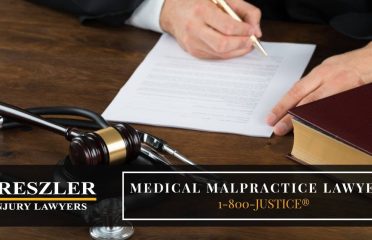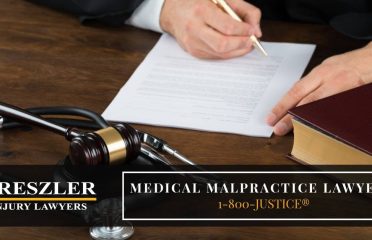Steps to Take After an Accident: Advice from New York Personal Injury Attorneys
Experiencing an accident can be overwhelming and stressful. Knowing the right steps to take immediately following an incident is crucial to protecting your rights and ensuring you receive the compensation you deserve. New York personal injury attorneys offer invaluable advice to help guide you through this challenging time. This comprehensive guide outlines the essential steps to take after an accident, from immediate actions at the scene to the legal procedures that follow.
Understanding the Importance of Immediate Action
The First Moments After the Accident
Ensure Safety and Seek Medical Attention
Your health and safety are the top priorities immediately following an accident. The first step is to ensure that you and any passengers are safe. If you can move without causing further injury, get to a safe location away from traffic or any potential hazards. Once you are in a safe place, assess your physical condition and that of others involved. Even if you feel fine, it’s important to seek medical attention as some injuries may not be immediately apparent.
Call Emergency Services
Regardless of the severity of the accident, calling 911 is crucial. Emergency services will document the incident, and the presence of police can help manage the situation and provide an official report. This police report can be a critical piece of evidence if you decide to file a personal injury claim later.
Collecting Evidence at the Scene
Document the Scene
If you are physically able, gather as much evidence as possible from the accident scene. Use your smartphone to take photos and videos of the vehicles involved, any visible injuries, road conditions, traffic signs, and any other relevant details. Capture different angles and include close-ups and wide shots to provide a comprehensive view of the scene.
Exchange Information
Collect contact and insurance information from all parties involved in the accident. This includes names, phone numbers, addresses, driver’s license numbers, license plate numbers, and insurance policy details. If there are witnesses, gather their contact information, as their statements can be valuable during the claims process.
Avoid Admitting Fault
While it’s important to be cooperative and exchange information, avoid making statements that could be construed as admitting fault. Statements like “I’m sorry” can be interpreted as an admission of liability, which can complicate your personal injury claim. Stick to the facts when speaking to others at the scene.
The Importance of Medical Documentation
Immediate Medical Evaluation
Visiting the Emergency Room or Your Doctor
Even if you feel uninjured, it’s essential to undergo a thorough medical evaluation after an accident. Some injuries, such as concussions or internal injuries, may not manifest symptoms immediately but can have serious consequences if left untreated. A medical professional can diagnose and document these injuries, creating a crucial record for your claim.
Follow-Up Appointments and Treatment
Adhering to your doctor’s recommendations for follow-up appointments and treatments is critical. This demonstrates that you are taking your injuries seriously and are committed to your recovery. Skipping appointments or neglecting treatment can be used against you by insurance companies to argue that your injuries are not severe.
Maintaining Detailed Medical Records
Documenting Your Injuries
Keep a detailed record of all medical treatments, including doctor visits, hospital stays, medications, therapies, and any other relevant healthcare services. This documentation should include dates, names of healthcare providers, and descriptions of treatments and diagnoses. This comprehensive record will be invaluable in substantiating your claim.
Tracking Your Symptoms
Maintain a personal injury journal where you document your daily symptoms, pain levels, and the impact of your injuries on your daily life. This journal can provide a day-to-day account of your recovery process and help illustrate the extent of your suffering and the long-term effects of your injuries.
Legal Steps to Protect Your Rights
Consulting a Personal Injury Attorney
Why You Need a Lawyer
Hiring a personal injury attorney is one of the most important steps you can take after an accident. An experienced lawyer can navigate the complex legal landscape, negotiate with insurance companies, and ensure that your rights are protected. They can also help you understand the full value of your claim, considering medical expenses, lost wages, pain and suffering, and other damages.
Finding the Right Attorney
When selecting a personal injury attorney, look for someone with experience handling cases similar to yours in New York. Research their track record, read client reviews, and schedule consultations to discuss your case. A good attorney will provide a clear strategy for your case and be transparent about their fees and expectations.
Understanding the Claims Process
Filing an Insurance Claim
Your attorney will help you file a claim with the appropriate insurance companies. This process involves submitting evidence of your injuries and damages, including medical records, photographs, witness statements, and any other relevant documentation. Your lawyer will handle communications with the insurance adjusters to negotiate a fair settlement.
Dealing with Insurance Companies
Insurance companies often attempt to minimize payouts or deny claims altogether. Your attorney will advocate on your behalf, countering any attempts to undervalue your claim. They will ensure that you receive compensation that accurately reflects the extent of your injuries and losses.
Preparing for Legal Proceedings
Settlement Negotiations
Many personal injury cases are settled out of court through negotiations between your attorney and the insurance company. Your lawyer will leverage the evidence and documentation collected to argue for a fair settlement. They may advise taking the case to court if a satisfactory agreement cannot be reached.
Filing a Lawsuit
If settlement negotiations fail, your attorney will file a lawsuit on your behalf. This involves submitting a formal complaint to the court outlining your claims and the damages you seek. The lawsuit initiates the discovery process, where both sides gather and exchange evidence.
Going to Trial
Should your case go to trial, your attorney will represent you in court, presenting evidence, questioning witnesses, and making arguments to support your claim. While trials can be lengthy and complex, your attorney’s expertise will be crucial in achieving a favorable outcome.
Final Thoughts
Experiencing an accident can be a life-altering event, but taking the right steps immediately afterward can significantly impact the outcome of your personal injury claim. Ensuring safety, collecting evidence, seeking medical attention, and consulting a knowledgeable New York personal injury attorney are critical actions to protect your rights and secure the compensation you deserve. By following the advice outlined in this guide, you can navigate the aftermath of an accident with confidence and focus on your recovery.
Taking these steps not only helps in building a strong case but also in ensuring that you receive the necessary medical care and support during this challenging time. Remember, a proactive approach and the guidance of an experienced attorney can make a significant difference in the resolution of your personal injury claim.









